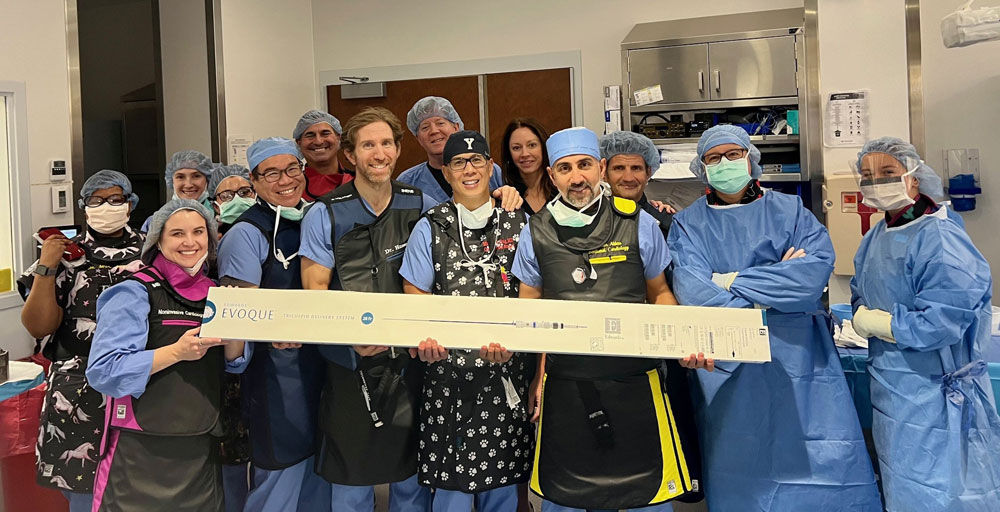Hobart resident Kym Thiel had never noticed any obvious signs of heart disease or even been seriously ill. But when she began feeling sick on the Wednesday before Thanksgiving last year, she knew she needed to visit the Emergency Department at St. Mary Medical Center.
Thiel, 60, says she became weak and sick to her stomach after work that afternoon. At one point she saw “speckles” in front of her eyes.
“I walked into the emergency room at St. Mary’s and told them I wasn’t feeling right,” she says. “Next thing I know, they are telling me I am having a heart attack. I called my sister to let her know, then I called my boss to let him know I wouldn’t be in on Monday. After that, I don’t remember anything until Sunday.”
Thiel found out later that she had suffered a cardiac arrest in the Emergency Department. Her care team applied CPR and advanced cardiovascular life support skills to restart her heart. Her blood pressure was very low and the right ventricle in her heart had stopped pumping blood into her lungs. This is a potentially fatal condition called cardiogenic shock that can occur in patients who suffer a severe heart attack.
The cardiology team administered IV medication to sustain Thiel’s blood pressure while cardiologist Kais Yehyawi, MD, quickly decided on the best approach to save her life. He and the team performed a right-sided Impella® procedure to allow Thiel’s blood to bypass her right ventricle, giving it time to heal.
“The right Impella is basically a pump that delivers between three and four liters of blood per minute to support the right side of the heart,” Yehyawi says. “When Kym had the heart attack, part of the heart muscle that had been receiving blood through the artery that was blocked lacked oxygen. So, the whole muscle became ‘hibernated,’ or not moving. The right ventricle then just pools the blood; it’s no longer squeezing blood to the lungs. That is why her blood pressure dropped.”
Most heart attack patients come in with damage to the left side of the heart, so left-sided Impella procedures are more common and have been performed at St. Mary Medical Center and sister hospitals, St. Catherine Hospital and Community Hospital, for several years. However, Thiel’s heart attack impacted her right side, making this the first right-side Impella procedure performed on a patient in Northwest Indiana.
“Time is of the essence in allowing that heart muscle to recover,” Yehyawi says. “Meanwhile, the blood pressure has to be maintained. What we’re trying to do is buy time. Once we got the Impella in place, within an hour we saw her blood pressure begin improving and stabilizing.”
Thiel received two stents in the right side of her heart, and her doctors kept her on the Impella for four days. She remembers nothing of that time.
“I’m very thankful,” Thiel says. “I feel great. For you to tell me right now that I had stents put in or I had a heart attack, I’d tell you that you were crazy.”
Checkups with a primary care physician are important for safeguarding heart health. To find a provider near you or for a referral to the Advanced Heart & Vascular team at Community Healthcare System, call 219-836-3477 or visit COMHS.org/heart.


